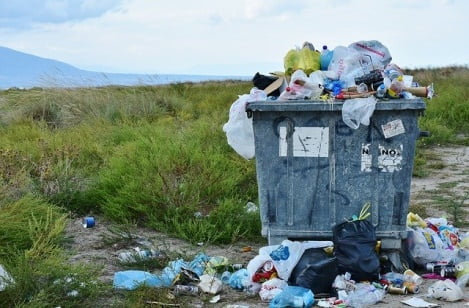Regular readers will be aware of my enthusiasm for a deposit system to encourage recycling of plastic containers and aluminium cans.
While researching material for this month’s feature on Recycling and Waste Management, and after reading about all the positive work undertaken by industry associations, recyclers and individual companies, plus the DFFE EPR regulations to make the producers responsible for recovering and recycling the packaging they produce to sell their products, I had the following thought.
Are all our efforts to benefit from a recycling industry and particularly job creation for the masses of unemployed people only adding to the problem of littering and dumping? Isn’t the creation of jobs that are designed to pick up after people that have littered counterproductive?
Surely we should be trying to change people’s behaviour to stop them littering in the first place and making it socially unacceptable – similar to allowing your dog to foul the footpath?
Many countries levy hefty fines for littering and that includes dropping cigarette butts. In the UK for example, a fixed penalty fine is £150 (R3 000) rising to £2 500 (R50 000) if the matter goes to court.
In Singapore, first offenders are fined S$1 000 (R12 000), while repeat offenders have their fines doubled and have to spend a few hours cleaning a public place.
These measures are designed as deterrents to change people’s behaviour and to act responsibly in society.
Here heavy fines are also part of the statute with first timers fined up to R8 700 and habitual offenders up to R17 400.
But when did you last see a ‘Bobbie on the beat’? The chances of being caught, especially in a township situation are remote.
It was recently reported that Cape Town’s Solid Waste by-law enforcement unit announced that, in the past six months, it had issued fines amounting to R1.3 million for cases of littering and illegal dumping.
Urban waste management mayoral committee member Grant Twigg admitted that illegal dumping was a City-wide problem, but areas that were specifically affected included Phillippi, Khayelitsha, Mitchells Plain, Kuils River and Athlone, and that the City cannot have eyes on every street corner.
Why do people litter? Apart from laziness or incapacity, the disposal of a container which has no value is simply a pain so why not just chuck it away?
My argument which is not original, is to give the container a value which is redeemable at an easily accessible depot. Adding R5 or R10 to the price of a cool drink when originally purchased and is known to be redeemable would I assert, quite drastically change the littering mentality. For the poor unemployed person, collecting 20 plastic or aluminium containers would yield him or her R100 with very little effort and promote a cleaner environment to benefit us all.
A Swedish organisation, Pantamera, has this process down to a tee, and with Swedish Government support and oversight, has taken recycling to its logical conclusion with the installation of plastic and aluminium gobbling vending type machines installed in convenient retail spaces, which importantly dish out an agreed deposit. Its collection system is very sophisticated but the collection aspects are the same as we face here – giving the previously worthless product a value encourages an easy mindset change without penalising the user. Sure, they pay more for the first purchase and providing they reclaim their deposit by voluntarily recycling, there is no penalty. Why wouldn’t they do it?
Eish.
